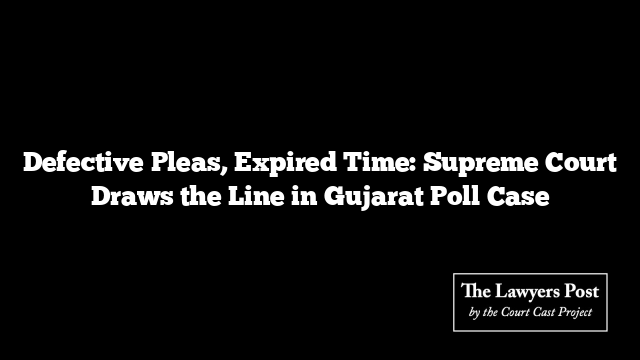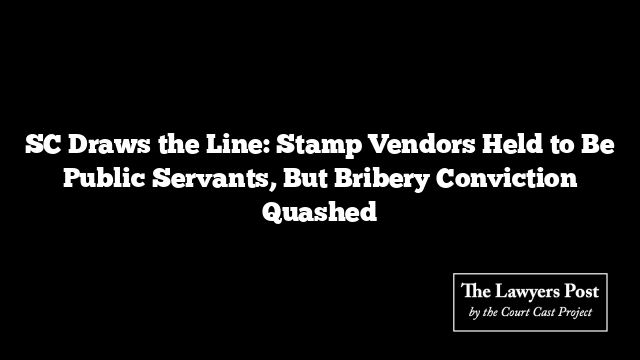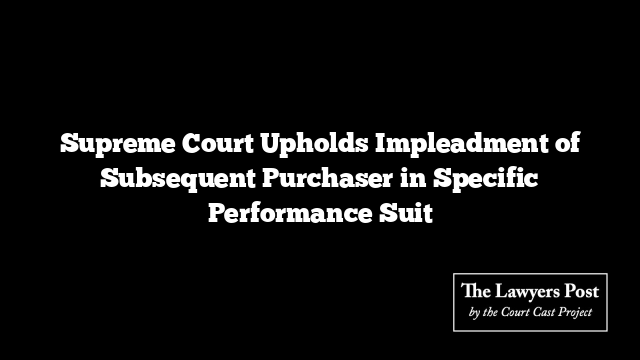In a case tied to the 2022 Gujarat Assembly elections, the Supreme Court delivered a sharp message this week: don’t confuse “presentation” with a placeholder. If your election petition walks in defective and stays that way past the deadline, it’s game over.
A bench led by Justices Surya Kant and N Kotiswar Singh refused to overturn a Gujarat High Court ruling that had no patience for half-baked petitions. The Court agreed: Section 81 of the Representation of the People Act isn’t satisfied by simply dropping off flawed paperwork and fixing it later.
Yet, while shutting the door on this specific case, the Court was careful not to bolt it shut for good. The broader legal interpretation of “presentation” under Section 81 was left unresolved, like a ticking legal time bomb waiting for another day in court.
The dispute arose after the High Court dismissed an election petition for being filed late—and riddled with errors. The timeline was clear. The election results were declared on December 8, 2022. The petition? Filed on January 18, 2023—already brushing up against the 45-day statutory deadline. By the time objections were addressed and the petition was formally registered on February 17, the clock had long stopped ticking.
The petitioners claimed that under the law, they had only to “present” the petition in time—not “perfect” it. They also argued that court rules required a judge to decide whether to grant more time to fix issues, but that never happened. Layered on top of the procedural wrangling were allegations that the winning candidate had 19 criminal cases and had hidden that from voters.
Justice Kant wasn’t impressed. “People still voted for him—by 15,000 votes,” he noted. And as for the idea that any defective petition could be salvaged so long as it was handed in on time, he didn’t hold back: “That’s a very, very dangerous proposition.”
In court, the tone grew firmer. The bench made it clear: rules exist for a reason, and deadlines are not decorative. “Why should we entertain this kind of litigation? You simply want to harass an elected candidate!” Justice Kant exclaimed.
The Gujarat High Court had already laid out the consequence: if the defects aren’t cured within 45 days, you’re out. No registrar or officer has the authority to stretch that timeline. That position stood.
The Supreme Court agreed with the logic, called it “reasonable and plausible,” and saw no need to intervene under Article 136 of the Constitution. Still, in a move of judicial restraint, the legal interpretation of “presentation” remains technically unresolved—open for future benches to unpack.
Until then, the signal is clear: defective petitions plus missed deadlines equal closed doors.





